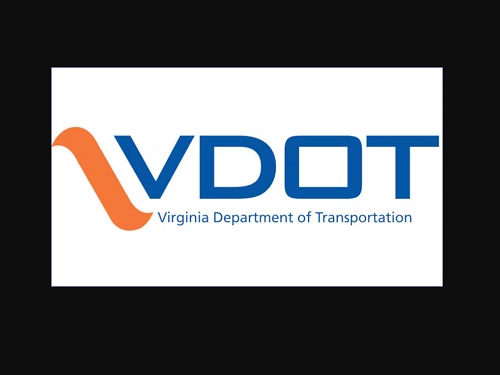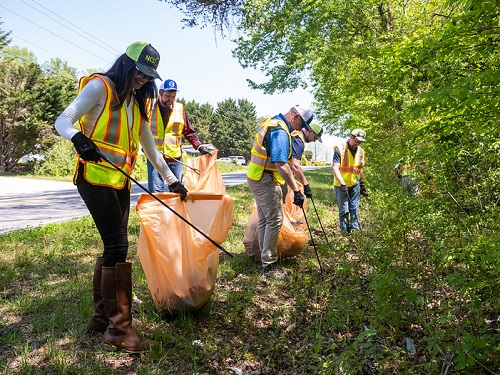The Virginia Department of Transportation said it has allocated $11.3 million in federal funding to assist in the statewide construction of electric vehicle or EV charging stations.
[Above photo by Virginia DOT]
The agency added in a statement that this funding will also help close existing alternative fuel corridor gaps along I-64, I-77, I-81, I-85, I-95, and I-295.
That $11.3 million is the first allotment under Phase 1-A of its statewide effort over the next four years to distribute $100 million worth of National Electric Vehicle Infrastructure or NEVI formula program funding; money that will help facilitate the deployment of third-party owned and operated EV charging stations at 18 sites across 13 counties, adding a total of 66 fast charging ports.
Notably, Virginia DOT said 14 of those charging stations are located within a half-mile of federally designated disadvantaged communities. Proposed locations were screened against federal requirements, with awardees selected through a competitive scoring process that evaluated location, station cost, level of applicant match funding, applicant qualifications, nearby amenities such as restrooms, dining, and shopping, and other customer experience-focused factors.
Other state departments of transportation across the country are engaged in similar efforts.
For example, the Illinois Department of Transportation recently released the first official notice of funding opportunity for round one of grants sponsored by NEVI program funding; grants that will provide up to $50 million for the construction of 46 charging stations across the state.
The Illinois NEVI program aims to accelerate the adoption of EVs by providing reliable access to charging on Illinois interstates and is part of a series of comprehensive initiatives to achieve the state’s goal of becoming a leader in manufacturing and deploying electric vehicles.
“This funding opportunity puts us one step closer to achieving [our state’s] goal to have one million EVs on Illinois roads by 2030,” said Illinois DOT Secretary Omer Osman in a statement.
Meanwhile, other state DOTs are deploying federal funds to either expand EV charger networks along highways under their purview or upgrade existing systems. Those initiatives include:
- The California Department of Transportation – known as Caltrans – received some $63.7 million from the Federal Highway Administration to fix and install more than 1,000 chargers at 300 sites statewide.
- The Pennsylvania Department of Transportation plans to repair or replace dozens of existing EV charging sites using a $5 million federal award. The agency also oversaw the completion and opening of Pennsylvania’s first federally-funded EV charging station in late December 2023.
- The Ohio Department of Transportation also opened its very first NEVI-funded EV charging locale for operation in December 2023.
- The New York State Department of Transportation is getting $13 million from FHWA to enhance the reliability of EV charging ports across the state.
- The Arizona Department of Transportation began seeking bids from private entities in January to build or upgrade electric vehicle or EV charging stations along several interstate highways.
- The Kentucky Transportation Cabinet broke ground on the first NEVI-funded EV fast charging station in the southeastern United States in February. The agency is currently seeking proposals to install up to 16 additional stations along interstates and parkways statewide using NEVI funding – all part of Kentucky’s longer-term effort to add up to 40 new fast charging stations by 2025.


